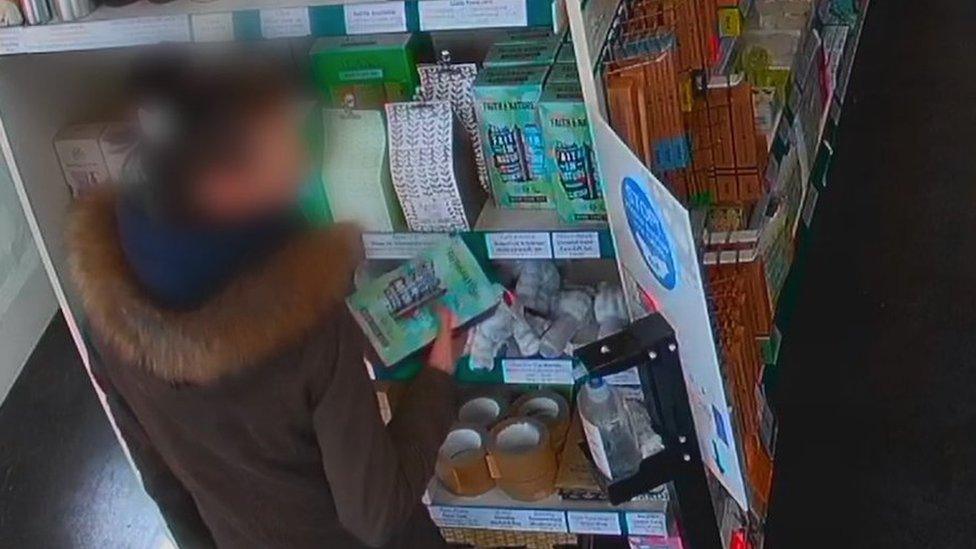Shoplifting: The small businesses using facial recognition cameras
- Published
CCTV footage shows the assaults and racial abuse Danyal Shoaib and his staff have been dealing with
Politicians and privacy campaigners have called for a ban on the use of facial recognition cameras, but some small shops are pushing ahead with plans to install the system amid rising levels of shoplifting. So, what motivates small business owners to invest in this costly and controversial technology?
Danyal Shoaib had grown used to regular shoplifters targeting his service station, but a rise in assaults and racist abuse convinced him something had to change.
"When we started to get physical assaults on staff, that's when we thought: this isn't fair on them and we needed to do something about it," he said.
Last month, he installed a new security camera that feeds into facial recognition software capable of identifying suspected offenders that have been flagged on the system, either by Mr Shoaib's business or others signed up to the scheme.
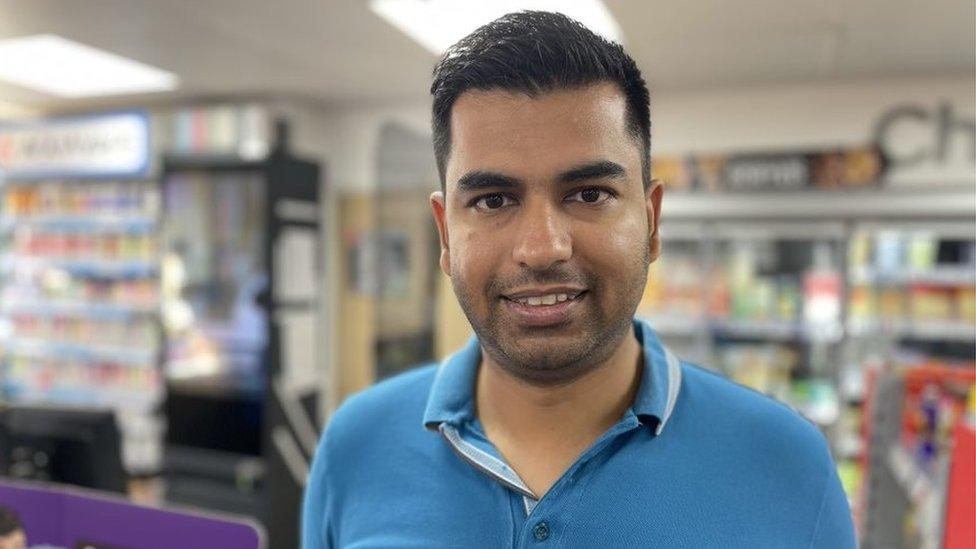
Danyal Shoaib said police did not follow up on reports of crime at his business
Rising levels of shoplifting are affecting businesses big and small. Bosses at major retailers, like John Lewis and Tesco, have said they are losing millions to shoplifting and are investing heavily on anti-crime measures.
Mr Shoaib said he lost £7,000 to theft in a year, while staff at his business in Leatherhead, Surrey, faced an increasing amount of abuse, including racial slurs.
"People seem to, for whatever reason, have got a licence to say it more often than before," he said.
But he said the police response had been a "big source of frustration".
"What we have found over the past five or six years, is police will close down the case almost immediately, they don't follow-up on it," he said.
Surrey Police said its officers were now "working closely" with Mr Shoaib's business after it "identified this is a repeat location of crime," adding: "Local officers are liaising with the business manager and staff to identify suspects and evidence as well as put in place measures to prevent further thefts."
At Ruxley Manor Gardening Centre in Orpington, south east London, facial recognition cameras have already been in use for several years.
Managing director James Evans said the true cost of retail crime is often overlooked.
"When people steal from you they don't realise the impacts it has, it affects the profitability of the business, it affects employment," he said.
The company now uses a system called FaceWatch, which scans the faces of everyone entering the building.
"FaceWatch pings our phones as soon as [a suspected repeat shoplifter] walks through our automatic doors," he said.
Staff will then ask the person to leave, or a security guard will follow them.
Prior to that, Mr Evans would rely on catching thieves in the act, which could then leave staff waiting two or three hours for police to arrive and make an arrest, he said.
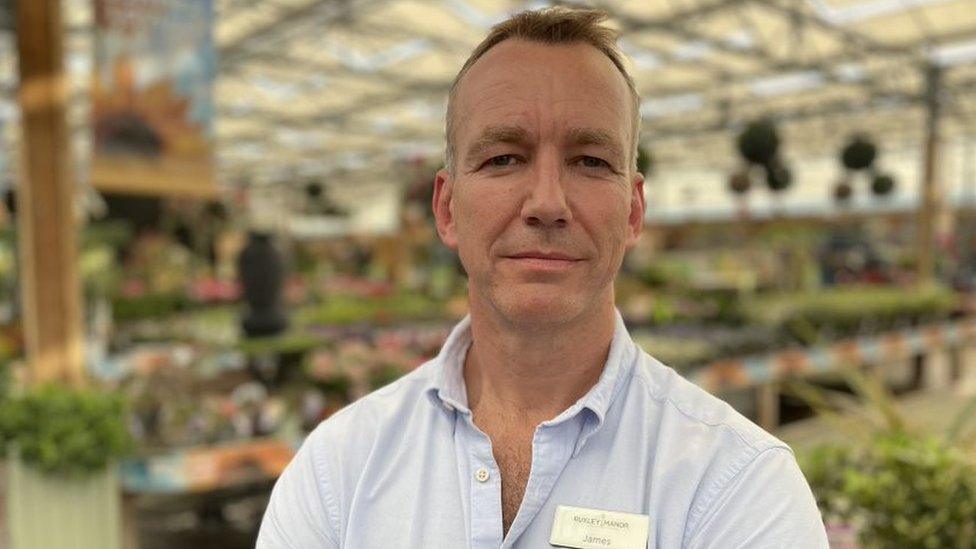
James Evans said staff used to spend hours waiting for police to arrive after they detained suspected shoplifters
Mr Evans said he initially worried about a negative customer reaction, but was reassured to learn it was FaceWatch, not his business, in control of sensitive data.
In March, after investigating FaceWatch, the Information Commissioner's Office (ICO) said it was satisfied the company had a legitimate purpose for using people's information for the detection and prevention of crime.
But campaigners are still concerned.
"Live facial recognition is a really intrusive and very controversial surveillance technology that essentially treats ordinary shoppers like criminals," said Madeleine Stone, of Big Brother Watch.
"It's essentially the equivalent of your local corner shop asking to check your fingerprints or check your ID every time you walk into a shop."
A statement calling for a ban on the use of facial recognition surveillance was signed by 65 MPs and Lords, and 31 charities and campaign groups.

Listen to more from BBC Radio Surrey on BBC Sounds

Responding to campaigners' concerns, FaceWatch founder Simon Gordon said: "The biometric data and the measurements of your face, which is what facial recognition is, is deleted the second it's been compared to that database.
"No one can track you or trace you, it's completely privacy protected."
He acknowledged "there will always be mistakes" but said that the system was now operating at "99.875% accuracy".
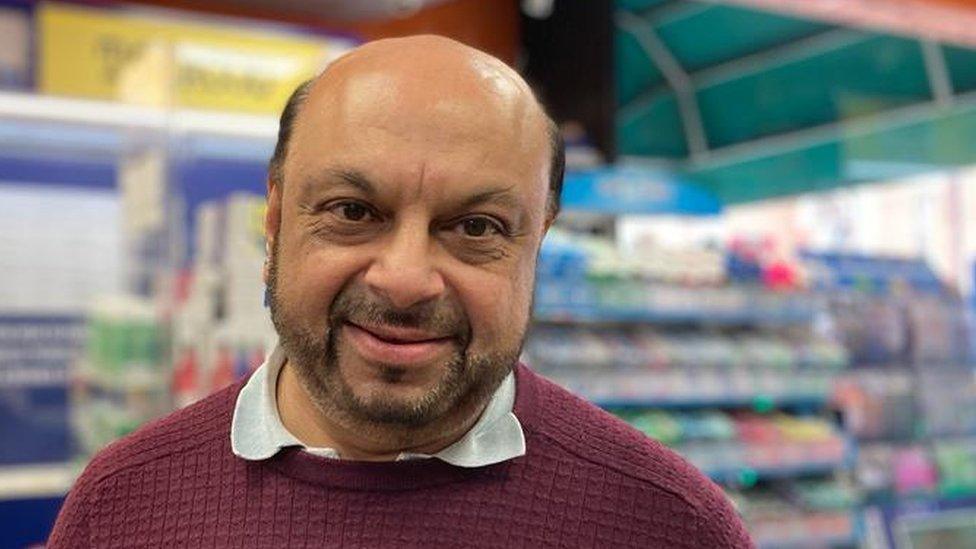
Sanjay Masrani believes facial recognition cameras are too expensive and too controversial
Not everyone is convinced. Sanjay Masrani has owned a convenience store in Tunbridge Wells, Kent, for 44 years and has experienced shoplifting and assaults.
He thinks facial recognition technology is too controversial and - at about £3,500 per year - too costly.
"At the moment, people really take it personally when you record them, they have this personal vendetta against you."
Policing minister Chris Philp supports shops using facial recognition, but says police must also do more.
"I think it's right that businesses do take steps to protect themselves...but I also expect the police to be there to attend the scene and to protect retailers."

Follow BBC South East on Facebook, external, on X, external, and on Instagram, external. Send your story ideas to southeasttoday@bbc.co.uk, external.
- Published16 September 2023
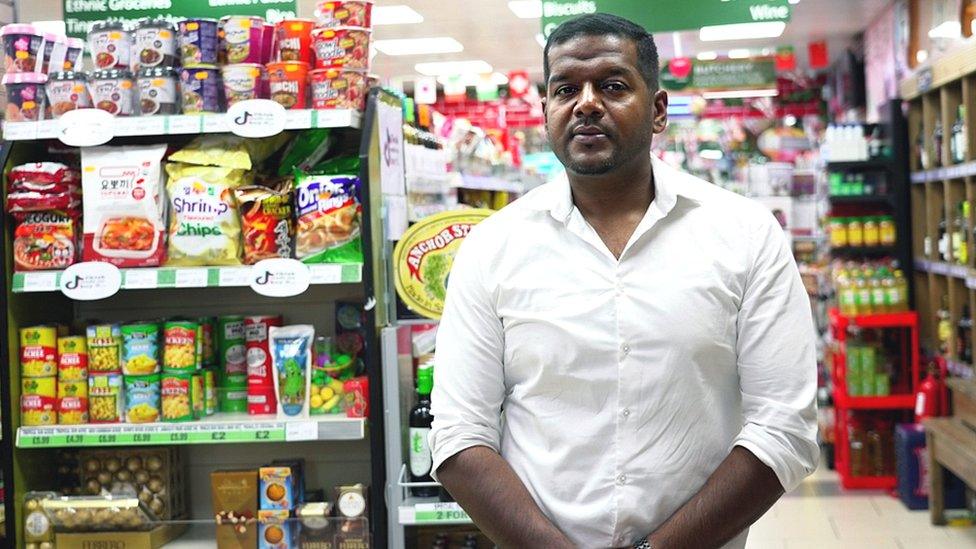
- Published1 October 2023
